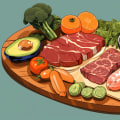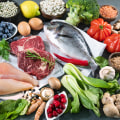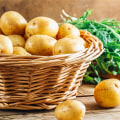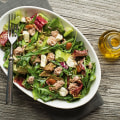Coming from the 1970s, the Paleo diet was designed to emulate the way humans from the Paleolithic era, or the Stone Age, ate about 2.5 million years ago. For vegetarians, grass-fed dairy products and eggs from grazing animals provide significant amounts of O3, especially omega-3 eggs (from hens fed a diet rich in O3, so the resulting eggs contain more of this mineral). Eating only eggs for protein would get really boring really fast, so they're not enough for most people, but especially for vegetarians, at least one egg a day (including the yolk, which is where all the nutrients are) will help prevent nutrient deficiencies. Simply put, a vegan diet excludes all meat and animal products (meat, poultry, fish, seafood, dairy products, and eggs); a vegetarian diet eliminates meat, poultry, fish, and seafood.
Eliminating gluten is another big step toward paleo health principles, and there's no reason why a vegetarian or even vegan diet can't be gluten-free. It's also possible that people on a paleo diet will learn something from the vegetarian movement that could also improve their health. Maintaining an open dialogue between vegetarians and paleo dieters can also help improve the science of paleo nutrition, by keeping the paleo community constantly alert. Even after reading Paleo's responses to vegetarian ethical and environmental arguments, some people aren't convinced, and besides, they're sick of people trying to persuade them to eat meat.
Paleolithic humans living in coastal areas would have access to seafood, and it's also likely that people around the world have added insects, honey, and honeycombs to their diet. The essence of the Paleo diet is to emulate this food concept with the foods available today and, at the same time, to focus more and more on the high quality and sustainability of food. To address this deficiency, many vegans take nutritional yeast as a supplement, which is probably fine on a paleo diet, even though it doesn't yet contain vitamin B12. Vegan, vegetarian, and plant-based diets are at odds with paleo: the former advocated eliminating dairy, meat, and fish, while the latter encourages the consumption of meat and fish. In fact, it's arguably healthier from a paleo perspective to eat real vegetarian foods, such as legumes and rice, than to eat artificial meat-based foods, like a Big Mac.
For many health lovers, vegan and paleo don't seem to go hand in hand: one of them is based solely on the power of plants. For people who avoid meat solely for health reasons, the scientific data that supports the paleo diet is often enough to return to eating animal foods. The big problem with the strict Paleo diet for most vegetarians is that it eliminates almost all of their protein sources.




